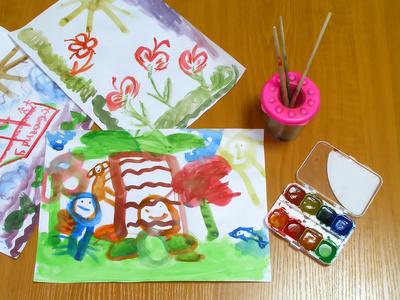When planning activities and games for children, many parents and teachers overlook relaxation games. These games work well for children of all ages and skill levels, giving participants a chance to recharge, refocus and just breathe. Integrate relaxing games with more active games to vary the pace of activities. The open-ended nature of relaxation games means you can play them for as long as necessary, expanding or contracting them to suit the attention spans and physical needs of the children.
Features
Many relaxation games center around guided visualization and meditation. You often create a meditative environment, such as turning off the lights in a room or, if outdoors, having children gather in the shade of a tree. Games may involve children lying down or may integrate movement and music, as in the case of doing yoga exercises.
Function
Relaxation games for children not only offer a moment of rest. If you guide children through deep breathing or slow stretching, the games can boost mental clarity, heal hurt feelings and improve balance and coordination. Try a card game such as Memory or a logic game such as 20 Questions to center children and give them a break between more active games.
Misconceptions
Some adults worry that too many quiet games will not entertain children, particularly those with attention deficit disorders. However, relaxation activities gently guide children in methods for self-soothing. Have children look for shapes in cloud formations or build sand castles to spark their imaginations. Invoke laughter with a circle game, such as Baby, I Love You. In this game, the leader does something to try to make another person smile or laugh. The person must respond, “Baby, I love you, but you just can’t make me smile.”
Benefits
Most relaxation games require little to no preparation. They have few rules, inducing less frustration. Many relaxing activities are cooperative rather than competitive, and they have no other objective than to pass time calmly. A relaxation game, such as Fact or Fiction, also inspires community-building. In this game, a person states three phrases about herself, two being facts and the other being fiction. The group must vote on which statement is a lie.
Considerations
You can adapt many games and activities to have relaxing elements. For example, try playing Animal Charades as a group rather than as a team. Rather than play competitive card games, build houses out of cards or take turns guessing whether a hidden card is red or black. Add classical music or nature sounds to a session of painting to make the experience more soothing.
Photo Credit
- children pictures image by Vladimir Kirienko from Fotolia.com





